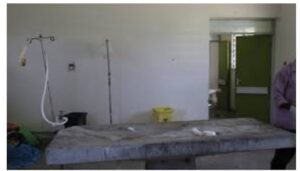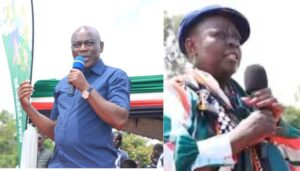Fuel dealers raise an alarm over the low uptake in the country

Fuel dealers raise an alarm over the low fuel uptake in the country as Kenyans shun the product over high prices
Fuel dealers raise an alarm over the low fuel uptake in the country as Kenyans shun the product over high prices.
On May 31, the Petroleum Outlets Association of Kenya (POAK) issued a warning over the low fuel uptake by motorists in the country.
In a brief statement, the Martin Chomba-led association claimed that the uptake of fuel products had significantly reduced by 25 to 30 percent.
According to Chomba, low fuel use would harm the operations of fueling stations and cause the economy to contract because the government would not be collecting as much money.
“This is how you know Kenyans lack money in their pockets. Petroleum retail is currently down by 25 to 30 percent. This is interesting because even the sale of diesel is down,” the Petroleum Outlets Association of Kenya stated.
POAK attributed the low fuel consumption to several factors, including the high fuel cost, the rising cost of living, and the ongoing economic uncertainty in the country.
It noted that the high fuel cost makes it difficult for motorists to fill up their tanks, while the rising cost of living forces them to cut back on non-essential expenses. The ongoing socio-political uncertainty is also making people reluctant to spend money.
“It means goods are not being transported across the country. This tells the state of the economy,” the Petroleum Outlets Association of Kenya stated.
While calling on a review of the taxes, believed to prompt motorists to avoid purchasing fuel products, POAK observed that low fuel consumption negatively impacted petrol station businesses that risk closure.
In the proposed Finance Bill 2023, the government proposed increasing Value Added Tax (VAT) on fuel from 8 to 16 percent.
Is Ruto using Mudavadi to reach out Uhuru, Experts
Ruto team in bipartisan talks responds after accusation of not signing a joint letter
Treasury on spot over disbursement of Ksh16.8 billion meant for retired teacher
Museveni tells off US over LGBTQ law
CS Kindiki hard pressed over Uhuru funding Mungiki claims
In September 2022, President William Ruto also removed subsidies on petroleum products after it became apparent that the scheme benefited a few businessmen at the nation’s expense.
According to experts, over-taxation of fuel products will resort to smuggling fuel into the country to evade taxes.
The experts warned that this could lead to a loss of tax revenue for the government and increase the risk of accidents and environmental damage.
It was observed that people who cannot afford to pay high fuel prices may turn to the black market to buy it at a lower price.
Black markets are often unregulated, and poorly distilled fuels sometimes contain impurities that can damage vehicles.
Energy and Petroleum Regulatory Authority (EPRA), on May 10, 2023, increased petrol, diesel, and kerosene prices by Ksh3.40, Ksh6.40 shillings, and Ksh15.19 per litre. The new prices took effect on May 15, 2023.
Following the new changes, Petrol, Diesel and Kerosene trades at Kshs. 177.10, Kshs. 143.50 and Ksh Ksh118.19 per litre.
Also read,
Ruto launches second product of hustler fund; qualifications and how to apply
Ruto commends Uhuru after delivering the assignment report
End Joho monopoly at Mombasa port, South Sudan asks Ruto
All Rural hospitals in Kenya won’t accept NHIF cards as of Wednesday
Follow us





